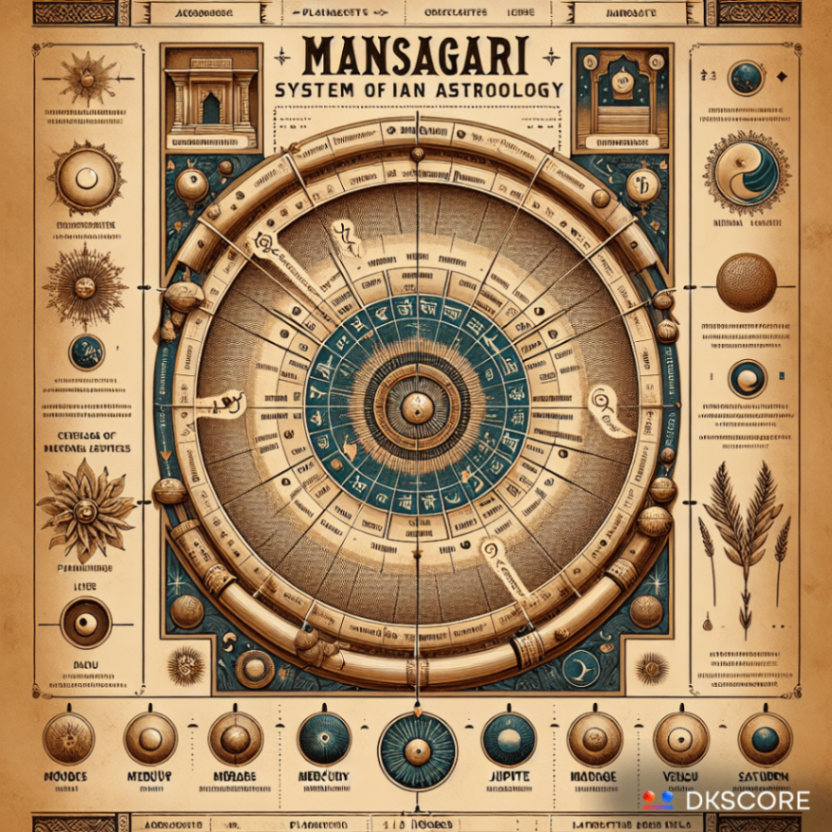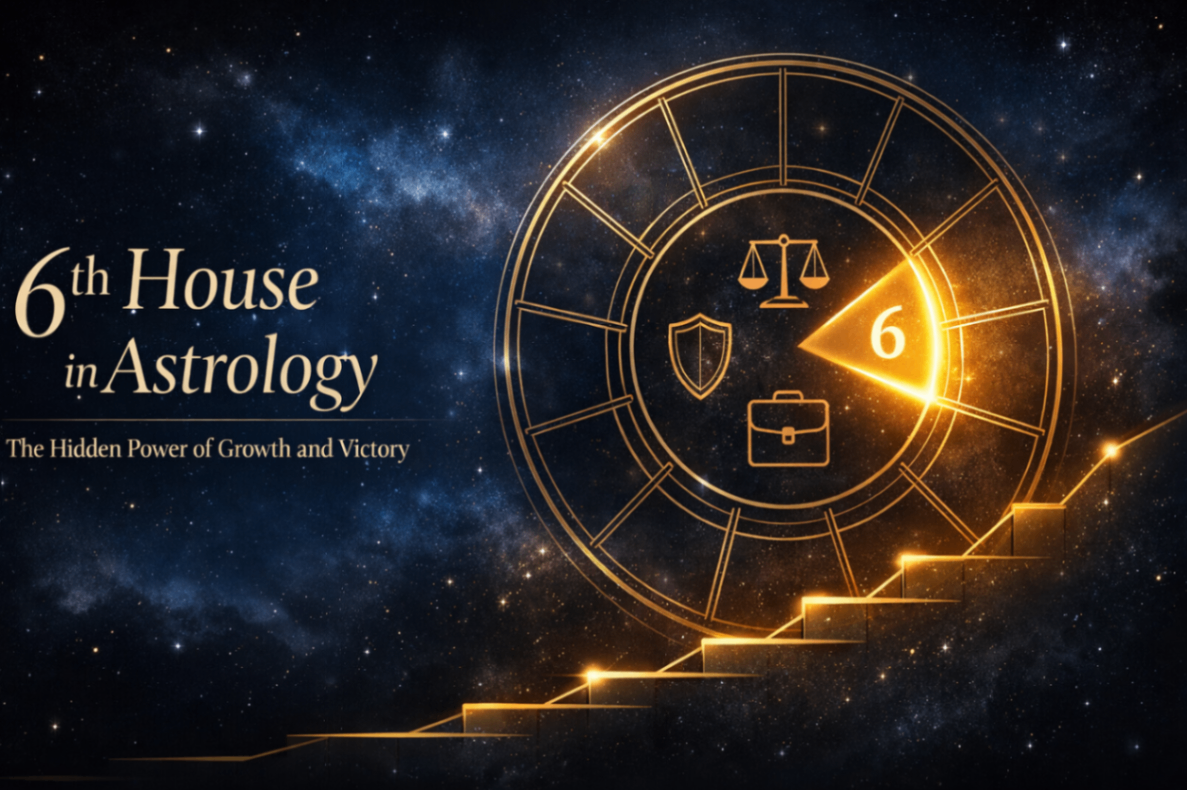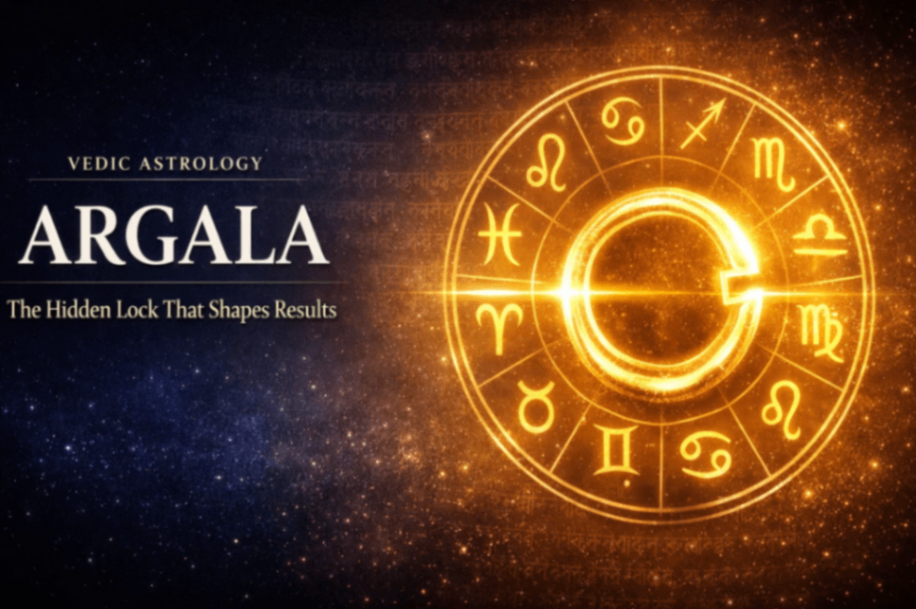What are Upachaya Houses?
Houses 3, 6, 10, and 11 are called the Upachaya houses. What does Upachaya mean? It means improvement, growth, progress. Now, of course, the most obvious question you may ask is how do these houses, often associated with challenges, lead to improvement and growth? Especially when some like the sixth house are considered dushtana houses, which typically signify suffering.
The Role of Upachaya Houses
The reason is simple. The Upachaya houses create an urge and tension in your life that drives you to improve your situation. Would you improve your life and experience growth if it was going in a relaxed, predictable fashion? Probably not. These houses have a competitive edge to them, which pushes you to improve, making a person opportunistic and risk-taking, especially during their dashes. This is why natural malefics like Mars, Saturn, and Rahu do very well in these houses and give the power to overcome difficulties.
The energies of the malefics—aggression, persistence, determination, and willpower—are gradually harnessed and eventually pay big dividends if theyre functioning well. The malefic qualities are in tune with the nature of the Upachaya houses, making them very compatible here.
Four Pillars of Life
There are four pillars in life:
Dharma Trikona: Represented by the 1st, 5th, and 9th houses and their respective Lords.
Artha Trikona: About material achievement and recognition, represented by the 2nd, 6th, and 10th houses and their Lords.
Kama Trikona: Represented by the 3rd, 7th, and 11th houses and their Lords, focusing on the fulfillment of desire.
Moksha Trikona: Represented by the 4th, 8th, and 12th houses and their respective lords, which liberate the soul from earthly karma.
If we exclude the two Maraka houses (2nd and 7th) from Artha and Kama, we get the Upachaya houses: 3, 6, 10, and 11. Lets focus on these and dig into them a little bit more.
The Third House
Desire is born in the third house. In the sixth house, these desires progress and face challenges and obstacles in the form of competition. In the tenth house, one acts upon them, and in the eleventh house, one gets fulfillment.
These houses need to work together, and more importantly, you need to take action. If we take the tenth house out of the equation, these houses become whats labeled as the Trishadaya houses, or the evil group composed of the 3rd, 6th, and 11th houses. Why evil? Because they represent the evil factors in life: desire, anger, and greed, respectively.
Remember, were speaking about an age when these qualities were regarded as socially unacceptable and therefore evil. Were no longer in that age, but that is when this was written, so you have to put that into context.
The Importance of the Tenth House
More importantly for our day and age, and for our benefit, how can we turn a potentially harmful house in our favor? The key is the tenth house and the tenth Lord. The tenth house is considered to be the zenith of human activity, representing karmas done by you through action and, to some degree, through speech in this birth.
The third house is sixth from the tenth, representing success in competition. The sixth house is ninth from the tenth, representing luck and fame. The eleventh house is second of the tenth house, representing wealth, family, and speech. This highlights the importance of the tenth house again. Karma alone can give or take ones desires to their ultimate goal and fulfillment.
Examining the Third House
The third and sixth houses are naturally owned by Mercury. The third house, as I mentioned, is considered a mild dushtana, so it may or may not be beneficial depending on how its working in your chart. The sixth house is an actual dushtana house, probably the most difficult of all three.
The tenth and eleventh houses are both naturally owned by Saturn. Mars, Saturn, Rahu, or Ketu placed in an Upachaya house under the aspects of benefics can grant fortunate results on the material plane. Often, the expansion that it brings is very quick, and sometimes an unlucky reversal of fortunes can happen here.
The third house is where you will find the courage, boldness, the ability to work with other people, and the discrimination to take risks on maturity. On a purely material plane, desire for anything is first created in the third house, which is part of the Kama Trikona we talked about. To convert this desire into a process, a good Mercury will be helpful in your birth chart.
Its that part of intelligence where personal skills are developed. Its vital for growth and physical development, and results—whether theyre good or bad—manifest very quickly here because, again, Mercury makes things happen very quickly.
Principle of Bhavat Bhavam
Using the principle of Bhavat Bhavam, the third house is second from the second house and eighth from the eighth house. It represents the actual wealth you can receive from your family and legacies. Its the house we look at for younger siblings. The main karaka also has to be examined here to see whether its functioning well, and that would be Mars. If Mars is too strong in an Upachaya house, it may not benefit the sibling but will be good for the person themselves.
One more thing that we can see from a strong third house is the promise of progeny or childbirth. The third house reveals whether one has the ability and vitality to produce a child. A strong third house is essential to fulfill the promise of having children. If the third house doesnt have any strength but the fifth does, then perhaps the child can come through other means like adoption.
Since the third house is eighth from the eighth house, we can also see longevity here. The third house is also the direct mirror of the ninth house, so it represents the projection, implementation, and fulfillment of the promises of the ninth house through the activities of the third house.
The Sixth House
This is a challenging house, and you can also even call it the black hole of the horoscope. Others, of course, are the eighth and twelfth, also known as trik houses. Its known as a dushtana house and is considered more severe than the twelfth and less than the eighth. The sixth house is conservative; it involves losses, enemies, debts, litigations, theft, service, competitions, corruption, and disease.
The more prominent you are in society, the more enemies youll likely have. But then if you have malefics there, youll have the power to vanquish them and thus ascend. The sixth house is second from the fifth, representing the way you use the creative energies of the fifth and how the resources of the fifth are stored and made available to you. The sixth house is twelfth from the seventh, so too much imbalance here will hit your business and legal partnerships, including your married life.
Both Mars and Saturn are karkas of the sixth house, so you need to examine them to see if the sixth house significations are working well in the chart.
The Tenth House
Lets talk about the strongest and most important Kendra house, which is the tenth house. This house is actually only second in importance to the ninth if you look at the entire chart. For instance, if the Lagna is weak and so are the ninth houses, but you have a strong tenth house, you will still have a long and eventful life.
Similarly, if the fifth house and Jupiter are weak but the tenth house and the tenth Lord are well placed, you can still expect children. The tenth house has to do with karma that were here to exhaust and spend. Its your personal action as an individual in the social and professional arena, and without it, the other three Upachaya houses become a combination of evil houses perpetuated by anger and greed.
The center of this house is called the Midheaven (MC), which you might have heard of as the zenith. It literally means the heights to which you can rise in power and prestige. This is the last of the Artha Trikona, the culmination of all the activities that give your personality and life some meaning. Hard and sustained efforts of the tenth house are required for the fulfillment of desire.
Significators of the Tenth House
Several planets can be taken as significators of the tenth house, including Saturn, Jupiter, and Mercury. Its important to see how they are placed and whether they are functioning in a high capacity in your chart. You can only convert the nature of the 3rd, 6th, and 11th houses, known as the Trishadaya houses or the evil houses, to Upachaya houses if the lord of the Lagna and the tenth house are strong.
The Eleventh House
The eleventh house is the purest of the Upachaya houses as it represents prosperity, accumulation, success, and gains of all kinds. Gain here is a broad term and can include gain of objectives, money, income, longevity, and anything earned through ones efforts or karma.
All planets have the potential to bestow riches, material comforts, and high status in the eleventh house. This house is the culmination of the Kama Trikona, where your desires are finally fulfilled. The word Kama itself doesnt just mean sexual desire but includes all things that make life worth living—things that ease you on a physical, emotional, and spiritual level.
These will mature with time, and the results of this house improve with age. The classics dont give importance to desire, stating that the more desires are fulfilled, the more additional desires are created, and the cycle never ends, hence the evil connotation of the Trishadaya houses.
Conditions for Positive Results
If the planets controlling these houses are linked in any way by aspect, conjunction, or being in each others houses with some benefic influence, it lifts the quality of the horoscope and gives beneficial results. There are two conditions that increase the potency of the Upachaya houses or their Lords to give positive results: the strength of the ascendant Lord and the tenth Lord, and some benefic aspect on these planets or their houses.
Functioning of Upachaya Houses
The third house is where you create your karma by exercising active choices between options. You evaluate, choose, and decide. You show your courage in facing up to the load of accumulated karma. The sixth house is where you realize the quantum of karma youve created for yourself or received because of the choices youve made. You then decide to work it out or serve it out. These two houses are natural houses of Mercury, the database manager of the zodiac.
The tenth house helps you intelligently and systematically work out the karma of the sixth house. Finally, the eleventh house reflects the gains received from this process. This is the function of Saturn as the strictest and fairest of the karmic teachers. Jupiter, the chief clerk of the eleventh house, controls wealth, expansion, wisdom, fortune, and friends. Even Saturn, being the lord of the eleventh house, makes achievements possible with hard work.
All planets give good results in the eleventh house. Your karma and mind play a great role in shaping the workings of the Upachaya houses. These houses help you fight against the odds and therefore improve your destiny through hard work, strong will, and competitive nature. You can overcome the obstacles of the sixth house and reach the tenth house, which denotes action, eventually leading to the fulfillment of desire in the eleventh house.
By effectively turning the Trishadaya nature of the houses into the Upachaya nature, you achieve growth and accomplishment over time. Its also useful to look at the Upachaya houses from the Lagna, Moon, and Arudha Lagna to get a full picture.
Thats my take on the Upachaya houses. I hope you found it useful and insightful. If so, dont forget to subscribe and, as usual, feel free to leave your comments below. Thank you, folks. All the best!






































